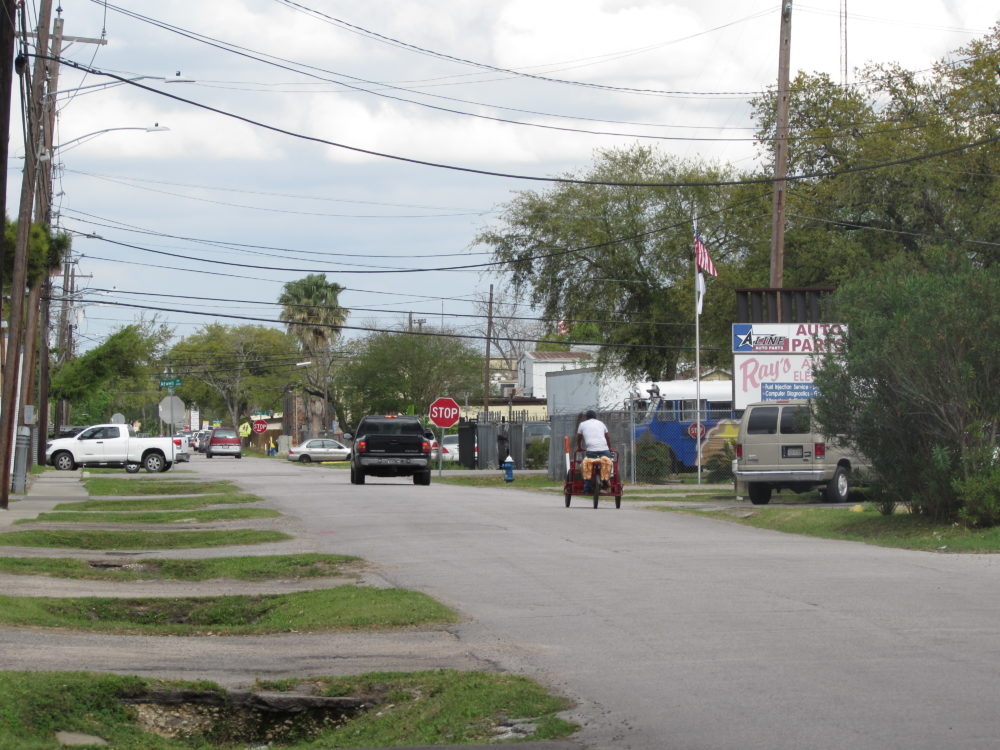Over an eight-month interval after Houston Mayor John Whitmire instructed the town’s planning division to “use discretion and waive sidewalk development” for sure single-family tasks, solely 6% of about 3,700 accepted tasks obtained waivers from sidewalk development necessities.
The waiver initiative got here after debate over the town’s sidewalk ordinance, which requires single-family development tasks to construct a chunk of sidewalk on the property or pay a payment if a sidewalk isn’t already in place. As a result of the payment is usually costlier than the price of constructing a sidewalk, the rule resulted in circumstances of particular person slabs of concrete in entrance of houses that related to nothing else — so-called “sidewalks to nowhere.”
“In authorities, unintended penalties is the worst factor that it’s a must to be involved with,” Whitmire mentioned in September, when he issued a memo instructing the planning division to waive the requirement if it resulted in a sidewalk to nowhere. “There are unintended penalties to the unique ordinance.”
Kevin Strickland, co-founder of mobility-focused advocacy group Stroll and Roll Houston, argued the phrase “sidewalk to nowhere” is “propaganda.”
“These aren’t sidewalks to nowhere. They’re sidewalks to someplace,” Strickland mentioned. “You don’t add by subtracting, which means we don’t get extra sidewalks by issuing waivers for folks to not have sidewalks simply because it could be the one sidewalk on their block.”
The planning division issued about 3,700 permits for single-family development tasks from late September by means of Might. Amongst these, 2,247 tasks “have been accepted to construct sidewalks,” in keeping with the planning division.
About 1,500 weren’t required to construct a sidewalk as a result of they entrance a non-public avenue or shared driveway. About 100 tasks paid a payment as a substitute of establishing a sidewalk. A further 234 obtained waivers “as a result of infeasibility or lack of close by connectivity.”
In response to public information requests from Houston Public Media, the planning division initially mentioned it was incapable of figuring out the variety of waivers issued that may permit tasks to keep away from sidewalks and charges.
“They don’t know as a result of they don’t care,” Strickland mentioned in June. “In the event that they cared about this information, it will have been tracked. So to me, it seems like a deliberate effort — don’t trouble monitoring it as a result of we’ve got no real interest in sharing it with the general public.”
Requested for touch upon Strickland’s perspective, the planning division in July then mentioned it obtained “further assist from our IT Division” and produced the information.
In September, the Houston Metropolis Council debated eradicating the sidewalk requirement altogether. After public pushback, Whitmire started the waiver program and the matter was referred to the planning division for additional consideration.
The planning division proposed an ordinance that may exempt tasks from the requirement below quite a lot of circumstances, together with if there are deed restrictions in place prohibiting sidewalk development, the lot is 1 acre or bigger, development of a sidewalk is deemed infeasible, or if there aren’t sidewalks on the identical block and the location isn’t inside 1,400 ft of a college, library or church.
The division hosted a collection of group conferences in October and deliberate to current a proposal to the town council in December — however that by no means occurred.
“We’ve got so many balls within the air, and so I hope that I can get this again up shifting, and we’re possibly by summer season, the primary week of August,” division director Vonn Tran mentioned in June. “We simply bought by means of finances and all the reorganization — simply plenty of shifting items. Part of it was we wished to offer it time. And so we’re about to circle again to it.”
Michael Pollack, professor of legislation and affiliate dean on the Cardozo College of Regulation in New York Metropolis, is the creator of an upcoming guide about sidewalks. “Sidewalk Nation: The Life and Regulation of America’s Most Neglected Useful resource” includes a part set in Houston. He argued that “sidewalks shouldn’t be the duty of the adjoining property proprietor, however reasonably a very concerted effort on the metropolis degree, on the governmental degree.”
“That mentioned, a system of advert hoc waivers from that legislation … that’s actually problematic, too,” Pollack mentioned. “If the entire level of this, of what I’m saying, is we’d like extra environment friendly and coherent and considerate planning, that’s the actual reverse of all of that.”
In September, at-large council member Sallie Alcorn raised the prospect of a voter-approved bond for extra intentional sidewalk development.
“Let’s do it,” Alcorn mentioned on the time. “Different cities do it. That is how they get nice sidewalks.”


